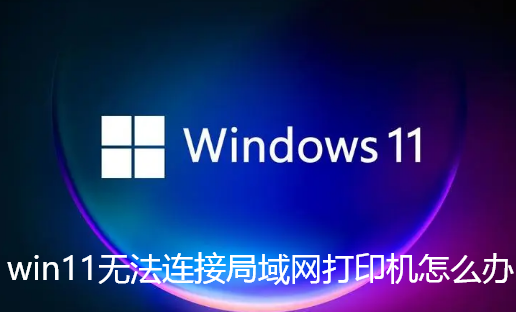 Common Problem
Common Problem There are only two ways to connect external devices to machines, one is parallel, and what is the other?
There are only two ways to connect external devices to machines, one is parallel, and what is the other?There are only two ways to connect external devices to the machine, one is parallel and the other is serial. A parallel connection transmits multiple data streams at the same time through multiple channels; a serial connection transmits only one data stream at the same time.

Parallel
Parallel refers to the transmission of multi-bit data through parallel lines at the same time. In this way, the data transmission speed is greatly improved, but the length of the parallel transmission line is limited. Because the length increases, the interference will increase and the data will be prone to errors.
Classification
Terminals communicate with other devices (such as other terminals, computers, and external devices) through data transmission. In data communication, according to the number of data bits transmitted each time, communication methods can be divided into: parallel communication and serial communication.
In parallel communication, each bit of data is transmitted at the same time, and can be performed in parallel in units of words or bytes. Parallel communication is fast, but uses many communication lines and is costly, so it is not suitable for long-distance communication. Various internal buses of a computer or PLC transmit data in parallel.
Features
1. Each data bit is transmitted simultaneously, with fast transmission speed and high efficiency. It is mostly used in real-time and fast situations.
2. The most basic information exchange method in microcomputer systems.
3. Information transmitted in parallel does not require a fixed format.
4. The data transmission rate of the parallel interface is 8 times faster than the serial interface. The theoretical value of the data transmission rate of the standard parallel port is 1Mbps (megabits/second).
5. Parallel transmission The data width can be 1 to 128 bits, or even wider, but as many data lines are required as there are data bits, so the cost of transmission is high.
6. Parallel communication has poor anti-interference ability.
7. Data transmission within the integrated circuit chip, between components on the same plug-in board, and between plug-in boards in the same chassis are all in parallel.
8. Use the computer's word length, usually 8 bits, 16 bits or 32 bits as the transmission unit, to transmit one word length of data at a time.
9. Suitable for short-range, large-scale and fast information exchange between external devices and microcomputers.
10. Parallel data transmission is only suitable for short-range communication, usually the transmission distance is less than 30 meters.
Serial
Serial refers to transmitting one bit of data at a time and continuously on the computer bus or other data channels. Communication method for the above single process. It communicates on a serial port by transmitting several bits of data at a time. Serial communications are used for long-distance communications and in most computer networks, where cables and synchronization make practical use of parallel communications difficult.
With its improved signal integrity and propagation speed, serial communication buses are becoming more and more common, and their advantages have begun to surpass parallel buses even in short-distance applications that do not require serial serializer and solve shortcomings such as clock skew and interconnect density. The upgrade from PCI to PCI Express is one example.
Comparison
Communication between computers and between parts within a computer can occur in both serial and parallel ways. . A parallel connection carries multiple data streams at the same time through multiple channels (such as wires, printed circuit wiring, and fiber optics); a serial connection carries only one data stream at a time.
Although the serial connection can transmit less data in a single clock cycle than the parallel data, the former's transmission capability seems weaker than the latter, but the actual situation is often that serial communication can be compared to Parallel communication makes it easier to increase the communication clock frequency, thereby increasing the data transmission rate. There are some factors that allow serial communication to have higher communication clock frequencies:
There is no need to consider the clock skew of different channels;
Serial connections require less physical media, such as cables and optical fibers, than parallel communications, thus reducing the volume of space occupied;
The problem of crosstalk can be greatly magnitude relief.
In many cases, serial communication becomes the better choice due to its lower deployment cost, especially for long-distance transmission. Many integrated circuits have serial communication interfaces to reduce pin count and thereby save costs.
The above is the detailed content of There are only two ways to connect external devices to machines, one is parallel, and what is the other?. For more information, please follow other related articles on the PHP Chinese website!
 win11无法连接局域网打印机,应该如何解决?Jul 01, 2023 am 08:57 AM
win11无法连接局域网打印机,应该如何解决?Jul 01, 2023 am 08:57 AMwin11无法连接局域网打印机怎么办?有不少用户的win11系统在使用局域网打印机功能的时候,无法正常连接到共享打印机,出现这个问题,可能是连接步骤或者是某项功能服务没打开。今天小编就给大家带来了多种解决方法,很多小伙伴不知道怎么详细操作,小编下面整理了win11电脑不能连共享打印机解决技巧,如果你感兴趣的话,跟着小编一起往下看看吧!win11电脑不能连共享打印机解决技巧1、首先,按键盘上的Win+X组合键,或右键点击任务栏上的Windows开始图标,在打开的隐藏菜单项中,选择运行;2、运行窗口
 使用PHP连接MariaDB数据库May 17, 2023 am 08:24 AM
使用PHP连接MariaDB数据库May 17, 2023 am 08:24 AMMariaDB是一种开源的关系型数据库管理系统,它是MySQL的一个分支。PHP作为一种开源的服务器端脚本语言,被广泛应用于Web开发中。在很多Web开发项目中,需要使用PHP连接到MariaDB数据库,以便在Web应用程序中存储和检索数据。这篇文章将介绍如何使用PHP编写代码来连接MariaDB数据库。一、安装MariaDB服务器在使用PHP连接Maria
 完全属于外部设备的有什么Dec 31, 2020 pm 02:46 PM
完全属于外部设备的有什么Dec 31, 2020 pm 02:46 PM完全属于外部设备的有激光打印机、移动硬盘、鼠标器等。外部设备是计算机系统中输入设备、输出设备和外存储器的统称,它对数据和信息起着传输、转送和存储的作用。
 PHP8.0中的连接多个任务库May 14, 2023 am 09:01 AM
PHP8.0中的连接多个任务库May 14, 2023 am 09:01 AM随着现代程序开发的不断发展,软件项目往往需要同时使用多个任务库来处理不同的任务。PHP语言一直是Web开发的重要工具,其在7.0版本中引入了新的并发处理特性,使得PHP在处理任务库时更加高效、灵活。在8.0版本中,PHP又新增了对连接多个任务库的支持,这为我们在处理大量数据和并发请求时提供了极大的便利。在本文中,我们将探讨PHP8.0中连接多个任务库的方法和
 如何解决MySQL连接错误1203?Jun 30, 2023 am 11:33 AM
如何解决MySQL连接错误1203?Jun 30, 2023 am 11:33 AMMySQL连接错误1203,如何解决?MySQL是一种广泛使用的关系型数据库管理系统,但是在使用MySQL时,一些连接错误可能会出现。其中一个常见的错误是错误代码1203,它表示数据库连接已中断。在遇到这个错误时,可以采取一些措施来解决问题。首先,我们需要确定错误1203的确切原因。这个错误通常是由于连接超时或连接过多引起的。连接超时可能是由于数据库服务器负
 Python连接阿里云接口,实现邮件发送功能Jul 05, 2023 pm 04:33 PM
Python连接阿里云接口,实现邮件发送功能Jul 05, 2023 pm 04:33 PMPython连接阿里云接口,实现邮件发送功能阿里云提供了一系列的服务接口,其中包括了邮件发送服务。通过Python脚本连接阿里云接口,我们可以实现邮件的快速发送。本篇文章将向您展示如何使用Python脚本连接阿里云接口,并实现邮件发送功能。首先,我们需要在阿里云上申请邮件发送服务,获取相应的接口信息。在阿里云管理控制台中,选择邮件推送服务,然后创建一个新的邮
 Java连接数据库的SQLException异常常见原因是什么?Jun 24, 2023 pm 11:21 PM
Java连接数据库的SQLException异常常见原因是什么?Jun 24, 2023 pm 11:21 PMJava连接数据库的SQLException异常常见原因是什么?在Java开发中,Database操作是非常关键的一环。其中,对于常用的CRUD操作,特别是SELECT和INSERT操作,都需要使用到JDBC来实现。但是,在JDBC应用开发中,与数据库的连接操作、SQL语言的执行过程、以及结果集的处理等阶段,可能会发生SQLException异常。本文将分析
 Java优化MySQL连接:提升写入及并发性能Jun 29, 2023 pm 10:18 PM
Java优化MySQL连接:提升写入及并发性能Jun 29, 2023 pm 10:18 PM如何在Java程序中优化MySQL连接的写入性能和并发性能?在开发Java程序时,我们经常需要使用到数据库,而MySQL作为一种常见的数据库管理系统,其连接的写入性能和并发性能是我们需要关注的重点。本文将介绍如何在Java程序中优化MySQL连接的写入性能和并发性能,以提升程序的效率。使用连接池管理连接:连接池可以管理数据库连接的创建、销毁和复用,避免频繁地

Hot AI Tools

Undresser.AI Undress
AI-powered app for creating realistic nude photos

AI Clothes Remover
Online AI tool for removing clothes from photos.

Undress AI Tool
Undress images for free

Clothoff.io
AI clothes remover

AI Hentai Generator
Generate AI Hentai for free.

Hot Article

Hot Tools

Safe Exam Browser
Safe Exam Browser is a secure browser environment for taking online exams securely. This software turns any computer into a secure workstation. It controls access to any utility and prevents students from using unauthorized resources.

SecLists
SecLists is the ultimate security tester's companion. It is a collection of various types of lists that are frequently used during security assessments, all in one place. SecLists helps make security testing more efficient and productive by conveniently providing all the lists a security tester might need. List types include usernames, passwords, URLs, fuzzing payloads, sensitive data patterns, web shells, and more. The tester can simply pull this repository onto a new test machine and he will have access to every type of list he needs.

SublimeText3 Mac version
God-level code editing software (SublimeText3)

ZendStudio 13.5.1 Mac
Powerful PHP integrated development environment

SublimeText3 English version
Recommended: Win version, supports code prompts!





